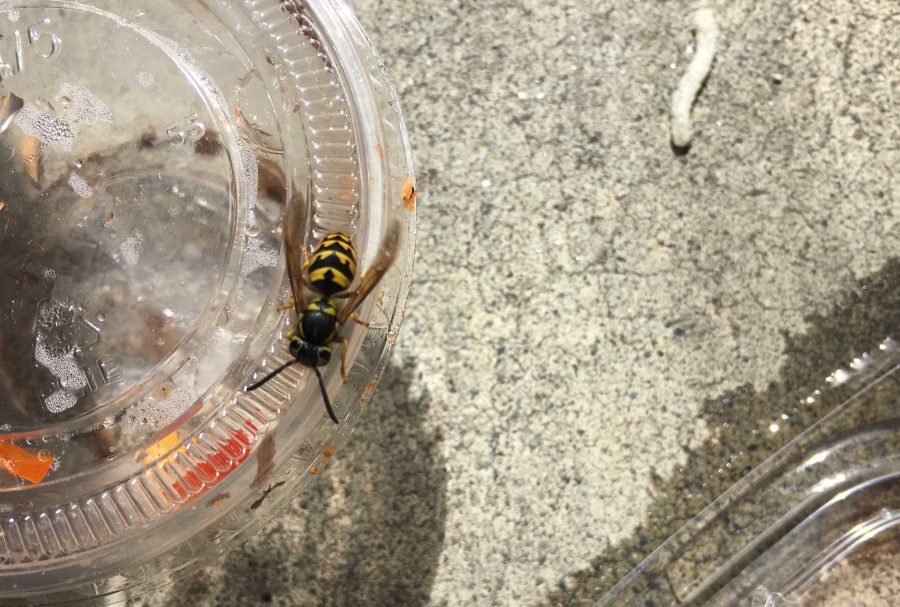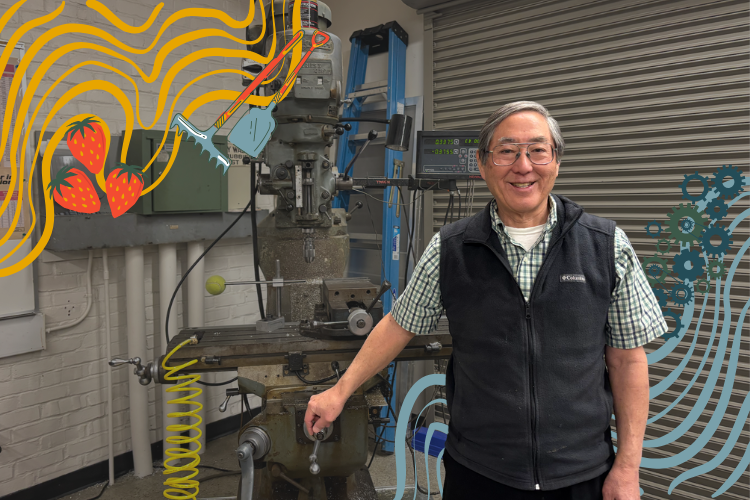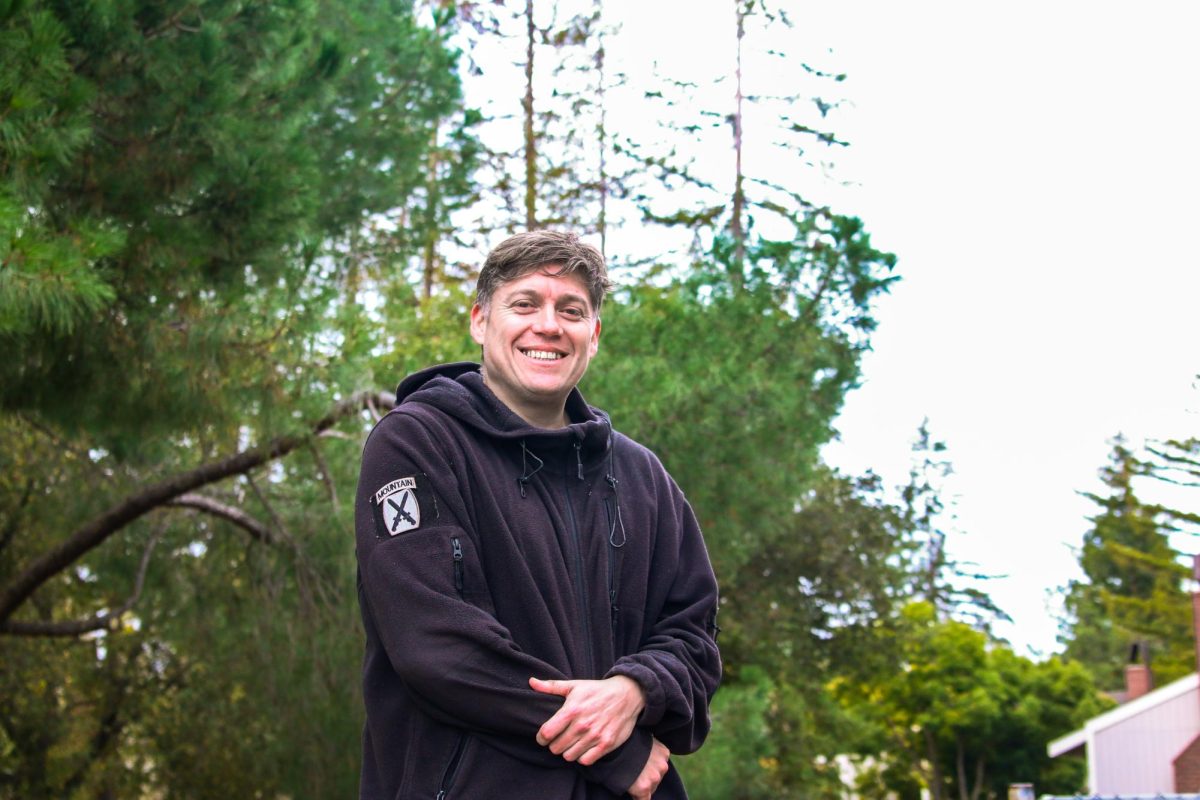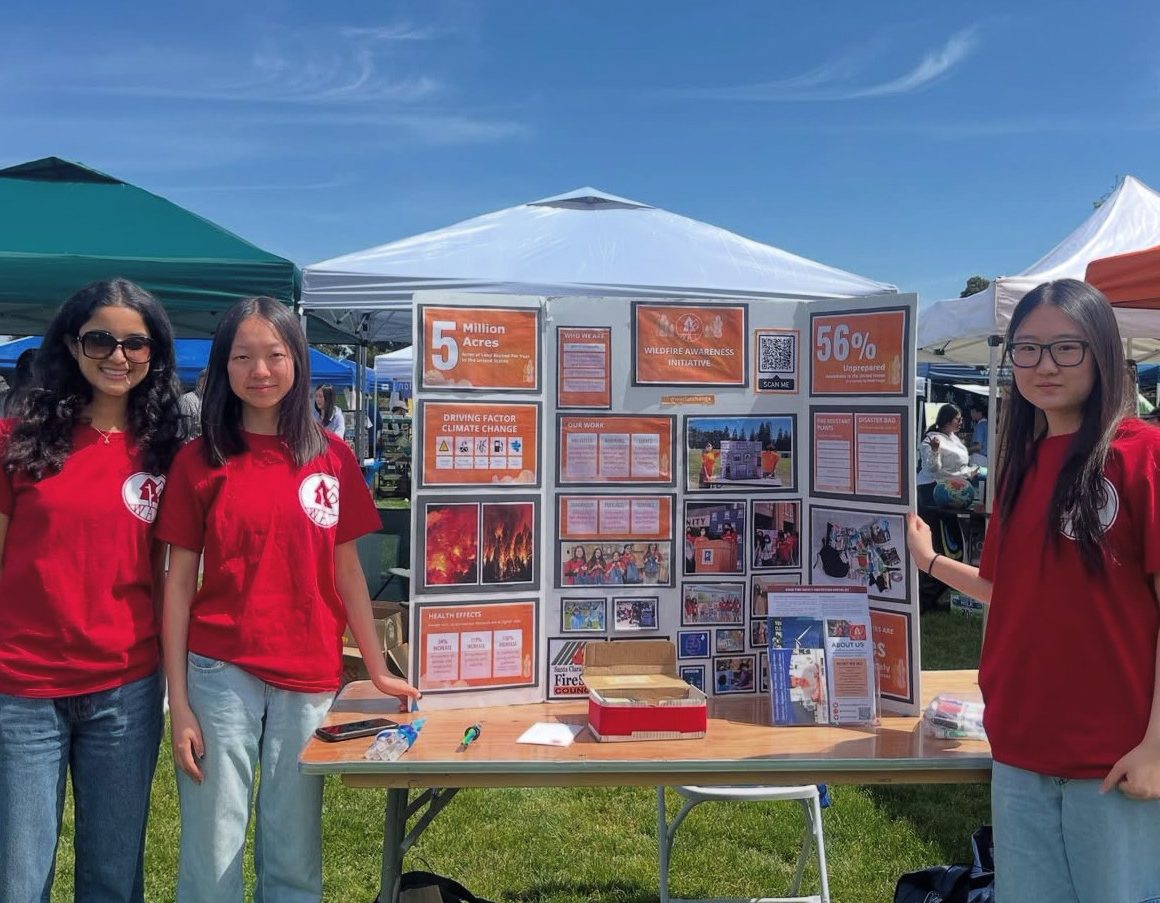During an AP Biology field trip to McClellan Ranch Park, senior Mansi Reddy was measuring the diameter of trees and taking a picture for her friend when she accidentally stepped on a wasp nest. Five bees suddenly surged towards Reddy, stinging her lip and hands. She sprinted towards the parking lot until she could no longer hear the buzzing in her ear.

When they first arrived at the park, Reddy wasn’t all that worried about bees, even though AP Biology teacher Pamela Chow had warned her about them. But as she walked around with a swollen lip the rest of the week, Reddy knew she would never forget that painful encounter with bees.
Reddy now flees at the sight of any bee in the hopes of avoiding any similar encounters.
“I kinda cover my face first of all,” Reddy said, “and then if I can run, I tend to run away.”
Experiences like this have shaped the popular opinion on bees. Most people think of bees as painful and annoying pests, and in cases like Reddy’s, their perspective is well justified. However, bees play an important role in our planet’s ecosystem, a role that many students tend to overlook when face to face with a bee.
“Pollination [is] one of the most important things that our planet has or that bees do,” biology teacher Kyle Jones said. “Not only for the environment, but also for humans. There’s billions of dollars of crops that bees pollinate for us, and if they didn’t, we would lose a lot of food. We wouldn’t have enough food to feed a lot of people.”

Over the past couple decades, bee populations have been steadily declining due to numerous factors, the most significant being habitat loss and pesticides. Ninety percent of the bee populations that existed in 1962 have disappeared, and this reduction in bee population could have disastrous consequences for our world. According to sophomore Max Goeltner, who has a much more positive outlook on bees, the fact that bees are going extinct makes it more important than ever that students be mindful about how they act around bees.
“People freak out and [overreact, but]…if we kill [the bees], we’re just harming our planet as well,” Goeltner said.
According to Goeltner, the most important thing to do is keep in mind that bees will not hurt anyone if they are not hurt in the first place, and that bees are a necessity to life as we know it. However, this is often a challenge for people with unpleasant experiences with bees. Sophomore Maya Singh, for example, was stung six times when on a camping trip. Ever since then, her natural reaction has been to run away, and it is hard to change that habit.
“I think most people know [about the importance of bees],” Singh said. “But it doesn’t affect them because [at that moment] most people think about themselves and not [the bees].”
Jones not only agrees with Singh’s perspective on the issue, but also thinks that people often don’t realize the magnitude of bees’ roles in pollination and what that means for society. When people don’t realize the significance of bees, they don’t think twice before hurting or killing them.

Goeltner, on the other hand, believes that this problem has to be solved in order to motivate people to treat bees better. He believes that a rise in awareness of the extinction of bees can change people’s mindset and lead to a positive difference, even if it’s saving one bee at at a time.
“People should be taught in schools to know the issues that are going around surrounding bees,” Goeltner said. “If everyone just learned [about] the problems then they will be able to take this problem into their own hands and help keep bees alive.”










